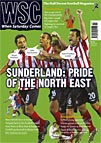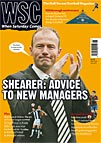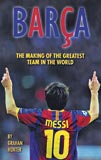 The making of the greatest team in the world
The making of the greatest team in the world
by Graham Hunter
BackPage Press, £12.99
Reviewed by Jonathan O’Brien
From WSC 304 June 2012
Graham Hunter’s new book about Barcelona arrives at a moment when the European and Spanish champions have been looking noticeably shaky for the first time in almost four years, dropping some very cheap points against La Liga’s minnows and going out of the Champions League to Chelsea. The 2005 publication of a similar book about Real Madrid, John Carlin’s White Angels, was immediately followed by the Merengues embarking on one of the worst runs in their history, so the club will not thank Hunter for his timing.
Like Carlin’s book, this one adopts a distinctly obsequious and worshipful attitude to its subject. Barcelona might play the most satisfying football witnessed on European fields since the days of Michel Hidalgo’s France, but they have a habit of reducing those who write about them to mushy superlatives and awestruck religious conversions. There is a fair bit of that here too, the details of which I will spare you.
Still, Hunter is not purporting to offer up a warts-and-all exposé, though plenty of dirt is dished about the decay that enveloped Joan Laporta’s presidency after the 2006 Champions League triumph. He can be partly excused on the grounds that there is so much about Barcelona that can be praised: the breathtaking football, the far-sighted youth policy and, not least, their charismatic yet contemplative outgoing manager.
The summer of 2008, when Guardiola was appointed, is shown to be a pivotal point in Barcelona’s history, not just because of his subsequent extraordinary feats, but also because the club came very close to giving the job to José Mourinho, who was then, as he remains now, the club’s sourest foe. When interviewed by board members Txiki Begiristain and Marc Ingla, Mourinho gave a “dazzling” presentation, but blew it by scoffing at the idea he would have to water down his behaviour at Barcelona. “I just don’t like him,” Ingla said to Begiristain afterwards.
So Guardiola it was. A scarcely credible run of nine major trophies out of a possible 12 ensued. Hunter centres the book on this “man of vision”, who sits up all night watch- ing football videos, never drinks, cries after important wins and lost his remaining hair rapidly after taking the manager’s job, yet shows utter ruthlessness when panning players who are not up to it (such as the hapless Aliaksandr Hleb, Dmytro Chygrynskyi and Zlatan Ibrahimovic, who, for all his flicks and tricks, proved horribly ill-suited to Barcelona’s dizzyingly complex system).
This is not a biography of Guardiola, but he dominates the book. The chapters on the star players are much shorter and relatively unrevealing. Hunter based those chapters on face-to-face interviews, which sounds great in theory, but modern footballers give little away at the best of times. So you are left with a flawed but fascinating study of a team moulded very much in its manager’s image – a team that, its recent stumbles notwithstanding, has reshaped the technical limits of modern football in a way that scarcely seemed possible beforehand.
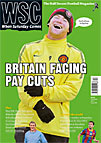
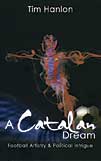 Football Artistry and Political Intrigue
Football Artistry and Political Intrigue 